Last updated on August 1, 2024
Are you interested in becoming a running coach? As a running coach, you’ll be the driving force behind your clients’ goals to become better runners. Whether they aim to master marathon techniques, refine their form, or achieve personal bests, you’ll be the expert providing guidance every step of the way.
But, how do you become a trusted running coach? The answer lies in completing a coach certification program. These programs are designed to help you reach coaching proficiency and build a successful business. If you’re passionate about running and want to transform your passion into a career, join us as we explore the best running coach certification programs.
- ISSA – Best Overall
- RRCA – Best for Tiered Learning
- UESCA – Best for Comprehensive Learning
- USATF – Best for Beginner to Advanced Learning
- NAASFP – Best for Running Coach Niche Options
Table of Contents
What Is a Running Coach?
A running coach is a fitness professional who specializes in helping clients improve their running performance and achieve their running-related goals. They provide guidance, training plans, and support to runners of all levels, from beginners to experienced athletes.
Running coaches may work with individuals or groups. Their responsibilities typically include assessing a runner’s abilities, designing personalized training programs, offering advice on technique and form, and helping clients stay motivated and injury-free.
How To Become a Running Coach
Aspiring coaches often wonder whether to pursue a running coach certification. Professional running coaches usually have credentials and certifications after their names, but are certifications a necessity?
Getting certified isn’t mandatory in the coaching industry, but this credential can distinguish you from other coaches. When faced with the choice between a certified running coach and one without certification, most runners tend to favor professionals with established credentials.
These certification programs also delve into various topics, so you can opt for training that matches your level of proficiency and interests in this field.
Factors to Consider When Choosing a Running Coach Certification
There are a lot of running coach certification options out there so, how can you simplify your decision-making process? Take into account key factors such as the program’s cost, duration, and accreditation.
Program Cost
Getting certified as a running coach requires an investment, but you have flexibility in how much you want to spend. Certification program costs vary widely and cater to different budgets. This diversity is even more evident in online programs, where you can find options to fit your specific financial constraints and coaching goals easily.
Course Length
The duration of the course also needs to align with your coaching goals. If you’re eager to earn your certification quickly, short intensive programs or self-paced courses without strict schedules are options to consider. On the other hand, if you prefer a more interactive learning experience or wish to take your time, comprehensive courses with live classes might be the ideal choice.
Accreditation
Accreditation can help your career by making your certification more recognized and trusted by clients, but not all programs are accredited. Accreditation is a matter of preference, and there are high-quality courses that don’t uphold this reputable credential. The most well-known accredited body is the International Coaching Federation (ICF), but running coach certification courses can also be accredited by other accrediting institutions, such as the National Commission for Certifying Agencies (NCCA).
Best Running Coach Certification Programs
Top Pick: The International Sports Sciences Association (ISSA)
Our top pick for running coach certification is the ISSA Certified Running Coach program, which offers the best price-quality ratio. ISSA is a well-known fitness certification provider with NCCA credentials, which gives your certification global recognition.

Whether you’re new to the field or already have some experience in running coaching, this program can work for you. It covers a range of topics, including running mechanics, training principles, human anatomy, programming, and injury prevention. You’ll also discover how to use these techniques with different clients.
To enroll in this program, you must have an active CPR certification. If you don’t already have one, you can acquire it when you purchase the program.
- Course Length: Self-paced
- Program Cost: $799 (+ $49 for CPR/AED certification if you need it)
- Accreditation: NCCA
- Mode of Delivery: Online
Choose Your Level Option: The Road Runners Club of America (RRCA)
The RRCA Coaching Certification Program offers two running coach certifications: Level 1 and Level 2. Level 1 focuses on adult distance running and briefly covers youth running, while Level 2 delves into the science and psychology of coaching. It’s up to you whether you want to acquire just the essential training with Level 1 or take your learning further and gain a more profound comprehension of the scientific, psychological, competitive, and managerial aspects of coaching through Level 2.

Both courses are online and conducted live over two consecutive days. Enrollment is limited to 35 attendees to ensure an optimal learning experience and instructor-student interaction.
For Level 1 certification, you need to have CPR and First Aid certification or to obtain them within 60 days of certification. To qualify for Level 2, you must hold Level 1 certification for at least 12 months and provide proof of coaching experience.
- Course Length: 2 days—Level 1; 2 days—Level 2
- Program Cost: $335—Level 1; $750—Level 2
- Accreditation: None
- Mode of Delivery: Online
Comprehensive Learning Option: The United Endurance Sports Coaching Academy (UESCA)
If you really want to go in-depth with your coach training, UESCA Running Coach Certification might be a good fit. They provide a well-rounded curriculum that touches upon numerous topics, including mental training, running apparel, environmental psychology, female physiology and training, injuries, and running mechanics and drills. That’s not all, as they also feature a robust business and marketing module.

Overall, this program aims to teach you about how the body works and how to use this understanding when working with runners of all skill levels. The course is self-paced, but you’ll receive email support and access to a private Facebook group.
- Course Length: Self-paced
- Program Cost: $499
- Accreditation: None
- Mode of Delivery: Online
Beginner to Advanced Learning Option: USA Track and Field (USATF)
The three-tier learning process of USATF provides a perfect path for those looking to advance from basic to advanced coaching education.
Level 1 centers on coaching fundamentals, including safety and risk management. To enroll, you need to have a USATF membership; once you pay the registration fee, you’ll have access to the courses.

If you’d like to further your education, Level 2 delves into the technical aspects of coaching and how to create coaching plans for a positive athlete environment. To qualify for Level 2, you must already hold Level 1 certification and have at least 3 years of coaching experience.
Level 3 provides in-depth instruction in event disciplines like sprints/hurdles, throws, jumps, and more. Level 3 requires Level 2 certification, a minimum of 5 years of coaching experience, and active coaching status.
- Course Length: 21.5 hours—Level 1; 20 hours—Level 2; 32 hours—Level 3
- Program Cost: $210 registration fee
- Accreditation: NCACE
- Mode of Delivery: Online
Choose Your Niche Option: The North American Academy for Sport Fitness Professionals (NAASFP)
With the NAASFP Running Coach Certification, you have three specialty options: Marathon Running Coach, Running Coach, and Walking Coach. This allows you to develop a niche within the running coaching field if you wish.

The NAASFP Marathon Running Coach certification and Running Coach certificate program is designed for experienced runners and walkers aspiring to become coaches. This modular program combines theory and practice so you can develop your coaching style. It focuses on performance enhancement and injury-free training, backed by materials created in collaboration with experts in these fields.
All three designations have the same training and skills. Once certified, you can coach runners and walkers in distances up to a full marathon. To select a specific designation, you need to indicate your preference during registration. Bear in mind that to become a Marathon Running Coach, you need to have completed a sanctioned, officially timed marathon or ultra-marathon.
- Course Length: Self-paced
- Program Cost: $325
- Accreditation: None
- Mode of Delivery: Online
Alternatives (non-niche)
Do you want to supplement a running coach certification with a life coach certification? Maybe you seek ICF accreditation, which isn’t available with these courses? Then, you should consider enhancing your training with life coach certification.
For hands-on training and ICF accreditation, we recommend Coach Training Alliance. Find out why CTA is our top selection in this review. If you seek a budget-friendly alternative, be sure to check out Transformation Academy.
Special Offer: Get 50% off all certification programs at Transformation Academy by clicking our link or entering code LIFECOACHMAG at checkout.
You can learn everything about this academy in our TA review.
FAQs
- How much does a running coach make?
According to Glassdoor, a running coach’s salary is $49,275 per year on average. This varies based on several factors, such as your location, demand in the market, your running experience, credentials, services provided, and more.
- Do you need a certification to be a running coach?
Certification isn’t a strict requirement to become a running coach. However, obtaining a running coach certification can enhance your knowledge, credibility, and trustworthiness in the field.
- How much does a running coach certification cost?
Running coach certifications fall in the mid-price range of life coach certifications, with costs varying from $200 to $1,000.
- Does accreditation matter in a running coach certification program?
Many reputable certifications aren’t accredited, which shows that accreditation isn’t necessary to indicate the program’s quality. However, if you want wider recognition, accreditation can be beneficial.
- What is the most recognized coaching certification?
In the coaching industry, there are numerous certification programs available, which can be quite overwhelming for both coaches and clients. Often, what matters more than the particular certification is gaining accreditation for recognition. This ensures trust and credibility in the coaching profession. Since the majority of running coach certifications don’t have the most recognized accreditation—ICF accreditation—you can gain this through life coaching programs like Coach Training Alliance.
Conclusion
The field of running coach certification provides a variety of options to cater to different interests and needs. Our top pick is ISSA, but the choice of certification program should align with your goals, budget, and desired level of expertise. Whether you aim to work with athletes, beginners, or specialized niches, there is no doubt that you’ll find a program suitable for you.
Also, don’t forget that the sky is your limit in this industry. You can also complement your running coach certification and open up broader opportunities in the coaching profession with life coaching certifications, like Coach Training Alliance or Transformation Academy.
Take the Coach Certification Quiz
Need help choosing a coach training and certification program? We created this short quiz to help you find the best program for you.
Take the quizThe Life Coach Magazine staff is your team for high-quality content on topics from personal development, to coaching tips, to how to grow your coaching business.






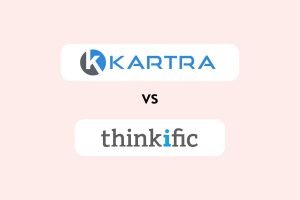
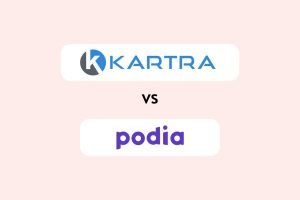
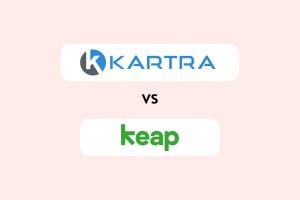
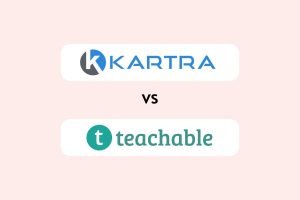
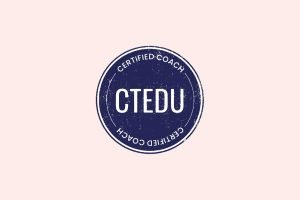






Be First to Comment